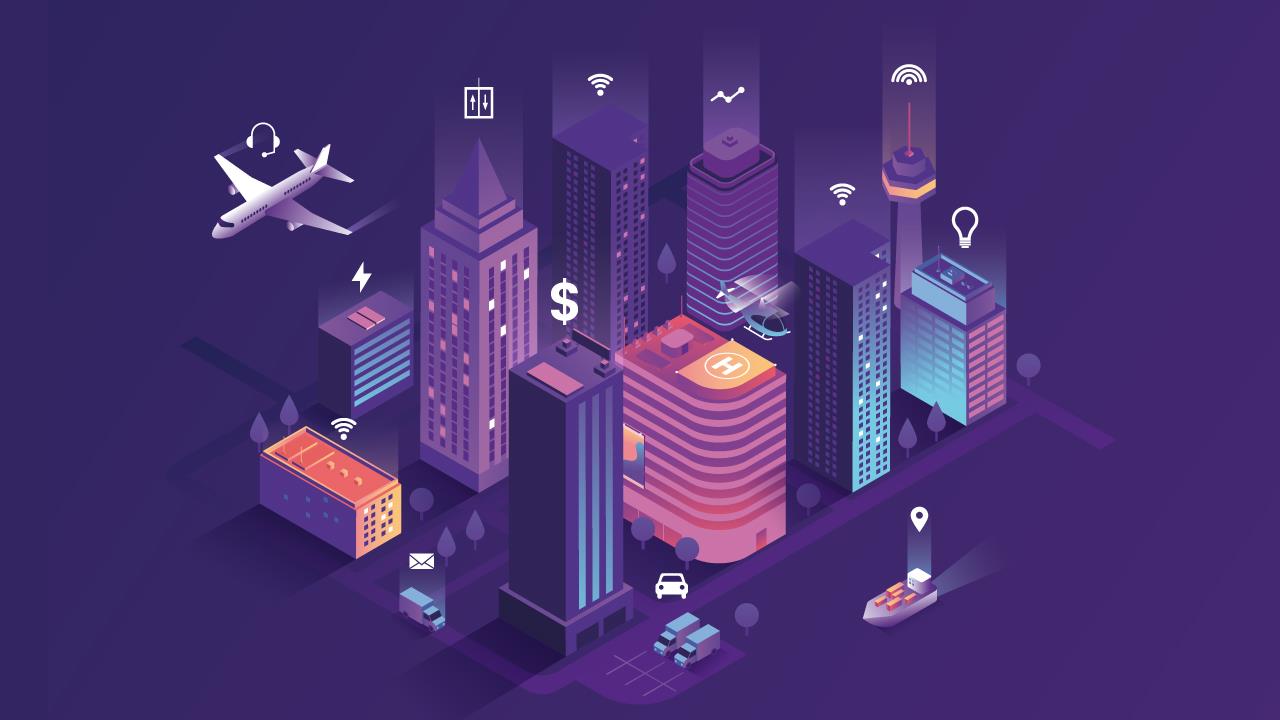

Jamie Bennett, Engineering Director at Drayton, discusses how early adoption of smart controls is the starting block in the development of ‘smart cities’.
Today, 55% of the world’s population lives in cities. By 2050, this number is projected to rise to 68%. The right technology, when used correctly, will allow growing populations to be serviced more easily.
We have already seen the first smart housing development built here in the UK in Milton Keynes, where all homes were built fully equipped with the latest smart technology using Apple’s HomeKit Platform. As technology progresses, the smart home has become more frequently discussed when imagining the future housing landscape.
While technology such as smart heating controls, smart meters, smart lighting, and smart security systems are all designed to create a more ‘helpful’ and, in some cases, more efficient home, it’s important to consider how these may feed into the ‘smart city’.
Let’s take smart heating for example and see where that fits into the smart city of the future. The smart heating controls available on the market today are designed with intuitive functions, to make heating control easier and more efficient than ever.
Today, some smart thermostats on the market can actually learn a homeowner’s schedule without any user input, turning the heating on at the right time in the relevant rooms. It’s also highly likely that at some point smart heating controls will be able to detect any fault within the heating system as it is forming, alerting the homeowner and registered heating engineer who can attend the property to fix the issue before it leads to a full breakdown. The fact is, devices around the home are getting increasingly smarter.
As manufacturers look to capitalise on the concept of the smart home, it is likely that their product ranges will expand from just smart heating controls to other products such as lighting and security in order to offer a comprehensive and integrated system that can control the whole home.
The concept of smart cities expands further than just the technology purchased by consumers for their homes, it also includes how this technology will interact with the city as a whole.
Smart cities present manufacturers and energy suppliers the opportunity to improve both their internal processes and customer offerings. By gathering more data from homeowners, manufacturers, and suppliers, we will be able to understand energy consumption in far more detail and act upon it. For example, in the future, energy suppliers may offer incentives and better tariffs to their customers in exchange for allowing the energy supplier to optimise their home heating.
This would give suppliers the ability to better manage the demand placed on the grid, while catering for homeowners’ needs. Additionally, with the right data analysis, housing associations and local authorities could potentially be able to monitor the energy usage for whole estates.
The development of smart cities will be no easy feat, with significant investment and work required to update the infrastructure, particularly that of the grid, which will support the move from fossil fuels to more sustainable sources of energy.
There are many opportunities around energy optimisation, storage, and generation, and having the right infrastructure and an open ecosystem are essential to its success. Additionally, the needs of each city and even neighbourhood will be different, and the government must take the time to analyse the data and fully understand its citizens’ needs.
While fully functioning smart cities are a long way off, we are certainly heading in the right direction. By starting in people’s homes and building this technology upwards into the infrastructure of the grid, smart cities will not only allow the population to be serviced more easily, but will also help to contribute to a greener and more sustainable future.
If you'd like to keep up-to-date with the latest developments in the heating and plumbing industry, why not subscribe to our weekly newsletters? Just click the button below and you can ensure all the latest industry news and new product information lands in your inbox every week.